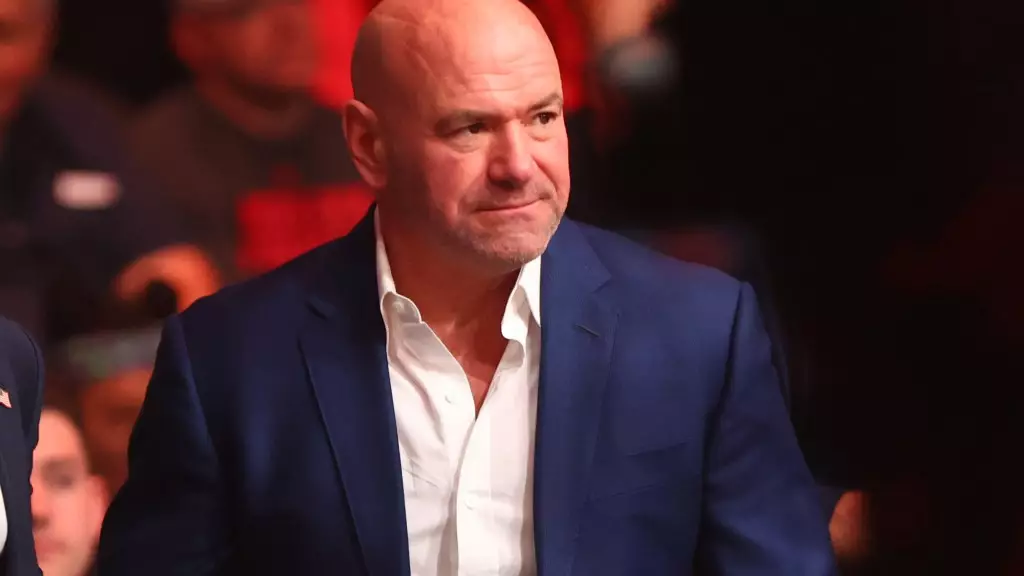In a landmark decision, a U.S. district court judge recently granted temporary approval for a significant antitrust settlement between the Ultimate Fighting Championship (UFC) and a collective of former fighters. This agreement, valued at $375 million, marks an important moment in the ongoing legal battles pertaining to the rights of fighters within the mixed martial arts (MMA) industry. Specifically, this settlement stems from the case of Le vs. Zuffa, which highlights the growing concern over the business practices employed by UFC, especially regarding how they affect fighter compensation and market competition.
The approval, issued by Judge Richard Boulware, was met with much anticipation and relief among the fighters who have long aspired for change. Approximately $240 million to $260 million is set to be distributed to qualifying fighters who participated in UFC bouts between December 2010 and June 2017. This substantial financial relief is a result of ongoing struggles that many fighters face after their careers, often characterized by mental, emotional, and physical hardship.
The antitrust settlement represents not only a financial compensation package but also an affirmation of former fighters’ rights. Over 100 fighters provided testimonials supporting the settlement, underscoring widespread acknowledgment of the struggles they endure post-UFC. These letters of support were pivotal in Judge Boulware’s decision, emphasizing the importance of fighter voices in shaping outcomes that directly affect their lives.
There’s a historical context to the fighters’ grievances. Many have claimed that the UFC’s contract structures essentially curtailed their ability to negotiate better terms or explore opportunities outside the organization. This situation has led to a perceived monopolistic environment, driving former athletes to unite and challenge the status quo through legal action. As such, the ongoing litigation against UFC, including the current settlement and other cases such as Johnson vs. Zuffa, underlines the collective resolve of fighters seeking redress for perceived injustices in the competitive landscape of MMA.
Before arriving at this temporarily approved settlement, the court had previously rejected a $325 million proposal with multiple discrepancies regarding compensation structures. Such rejections illuminate the complexities involved in legal negotiations, where the intricacies of each agreement can deeply affect both fighters and the organization’s future practices. The refinement of the settlement to its current form—removing the Johnson lawsuit while increasing the payment amount by $40 million—demonstrates a strategic recalibration aimed at achieving judicial acceptance.
The addition of financial relief for fighters underscores the necessity of recognizing their contributions to the UFC’s success. Fighter efforts helped create a lucrative platform, yet many struggled during and after their careers. Such inconsistencies within the UFC’s treatment and compensation of fighters have driven sharp criticisms, fostering an environment ripe for legal challenges.
If finalized, this settlement could herald substantial changes in how the UFC operates concerning fighter contracts and practices. The case serves as a testament to the efficacy of organized action among participants within a sporting arena long dominated by one entity. The prospect of such significant financial reparations represents a shift in power dynamics, potentially enabling fighters to negotiate terms that better reflect the industry’s revenue generation.
Lead attorney Eric L. Cramer expressed optimism regarding the preliminary approval, labeling it a “monumental achievement” for the fighters involved. However, the ongoing nature of the litigation against the UFC signifies that there are still broader issues to address—specifically, the quest for injunctive relief that could lead to systemic changes within UFC’s operational methodologies. The Johnson lawsuit focuses on ensuring that such changes manifest, providing a credible avenue for fighters seeking everlasting reform in contract management.
Sports, like MMA, hinge on the wellbeing of their participants. As the landscape continues to evolve through legal frameworks, the implications of this settlement extend beyond monetary compensation. It encompasses a re-examination of fighter engagement, autonomy, and the ethical responsibility of promotional entities.
With further hearings expected and final approval yet to come, the situation remains dynamic, but the recent developments point towards a potential inflection point for fighters’ rights. The convergence of legal advocacy, fighter support, and public awareness could foster an environment where athlete welfare is prioritized, thereby transforming the sport for current and future generations. This case may very well represent a significant step forward in the ongoing journey to ensure equity and justice within the often brutal world of professional MMA.

